
China
16:50, 06-Sep-2017
China Footprint: How a 'secret deal' transforms lives of Chinese farmers
By Xu Zhaoqun
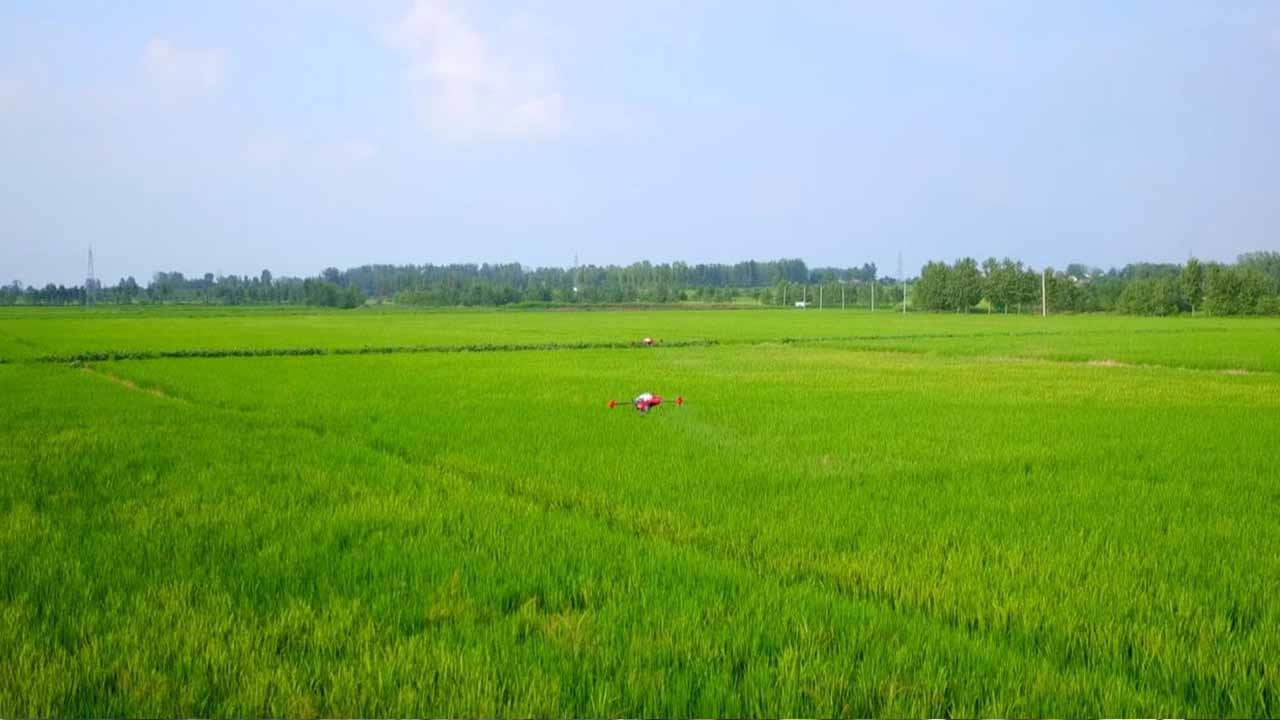
Since the beginning of China's reform and opening up nearly four decades ago, per capita disposal income of Chinese farmers has increased more than 90 percent, skyrocketing from 133.6 yuan (about 20.5 US dollars) in 1978 to 12,363 yuan (about 1,893 US dollars) last year.
The country has lifted over 700 million rural residents out of poverty, accounting for some 70 percent of those brought out of poverty worldwide.
All these achievements originated from a secret deal signed by a dozen of poor farmers in late 1970s in Xiaogang, a small village in Fengyang County, east China's Anhui Province. According the first episode of CGTN's special series "China Footprint," which aired on Wednesday, the village is often regarded as the place where China's economic reform began.
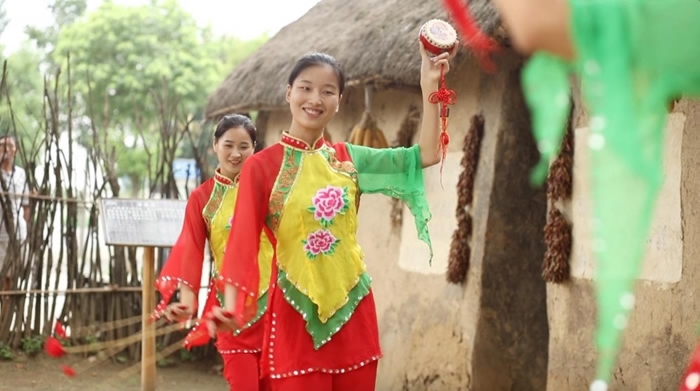
Huagu, a folk dance in Fengyang County, east China's Anhui Province. /Photo by Cai Jingxuan
Huagu, a folk dance in Fengyang County, east China's Anhui Province. /Photo by Cai Jingxuan
Family contract system
Huagu, a folk dance in Fengyang County, is a popular pastime with the locals. But the county's Xiaogang village is not renowned for the dance. Instead, it is known as the pioneer of a family contract system which ushered in China's new age of reform. Four decades ago, the locals were so poor that they needed to dance in the streets for money just to survive.
In December 1978, Yan Jinchang and his fellow farmers, representing 18 families in the village, met in a shabby house and agreed to sign a secret agreement to divide the land which belonged to the local People’s Commune into family plots. The villagers also agreed that should they be caught or sentenced to death, the others should raise their children until they were eighteen years old.
"Forty years ago, every family went out begging simply because we didn't have enough to eat. I have six children but the yield was never enough to feed them," said Yan.
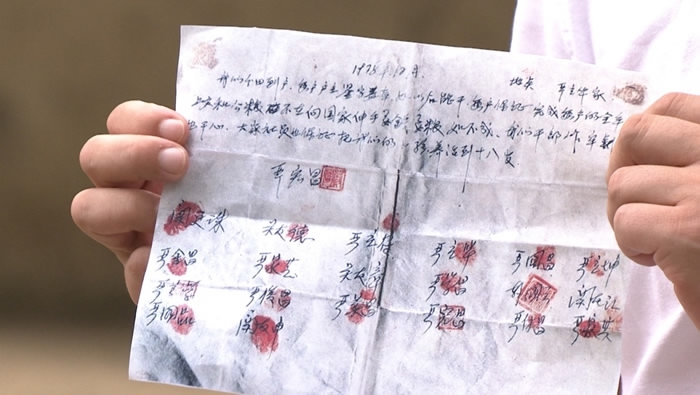
A secret agreement to divide the land which belonged to the local People's Commune into family plots signed by Xiaogang villagers. /Photo by Zhang Haosheng
A secret agreement to divide the land which belonged to the local People's Commune into family plots signed by Xiaogang villagers. /Photo by Zhang Haosheng
Years of collective farming in the People's Commune devastated the farmers' morale. They finally decided to work for themselves, even though individual family farming was considered a serious crime back in the late 1970s.
Fortune favored the brave. Six months later, the families reaped a very productive harvest.
The eighteen farmers not only went unpunished, their initiative was recognized by the provincial government. Their family contract system, which allow farmers to contract land and reap the harvests, was soon implemented around the whole country. It greatly increased productivity and changed people's minds.
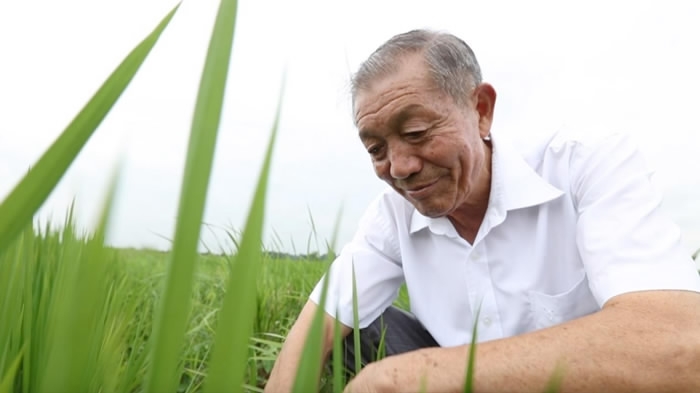
Yan Jinchang, a villager of Xiaogang. /Photo by Cai Jingxuan
Yan Jinchang, a villager of Xiaogang. /Photo by Cai Jingxuan
More ways to modernize agriculture
Today, as China's rural reform has entered another new stage, so has Xiaogang.
As the right of land management was transferred to farmers, the issue of hunger was resolved. But individual farming on the fragmented fields was not the way to increase farmers' wealth.
Yan and his fellow villagers are still contracting out the land, but they are not the only ones managing the farming. More than half of the land has been leased to farming companies and experts, and agriculture machinery is being applied more than ever with modern technologies like crop-dusting with drones gaining popularity.
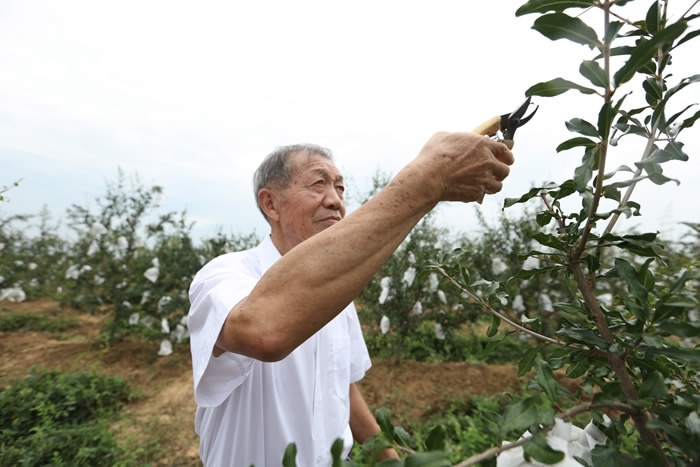
Yan Jinchang works in his orchid. /Photo by Cai Jingxuan
Yan Jinchang works in his orchid. /Photo by Cai Jingxuan
"However, mass production isn't the only way to bring farming methods into the 21st century," Zhu Qizhen, a professor at China Agriculture University, told CGTN. "There are many ways to modernize agriculture. Farmers should not only provide agricultural products, they should also benefit from the ecological value of the countryside."
The ecological value in Xiaogang is reflected in Yan's fields which ere leased to a pomegranate grower. The rent and Yan's salary as a worker in the pomegranate farm make him one of the richest people in the village and his farming skills are fully utilized.
The once unknown village has earned its place on China's political map. And the stories of Yan and his fellow villagers epitomize the country's spirit to succeed.
Yan believes signing the secret deal was the proudest moment in his life.
795km

SITEMAP
Copyright © 2018 CGTN. Beijing ICP prepared NO.16065310-3
Copyright © 2018 CGTN. Beijing ICP prepared NO.16065310-3